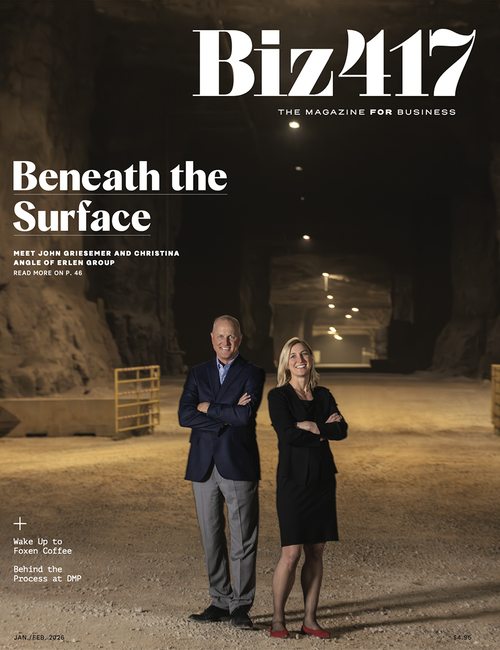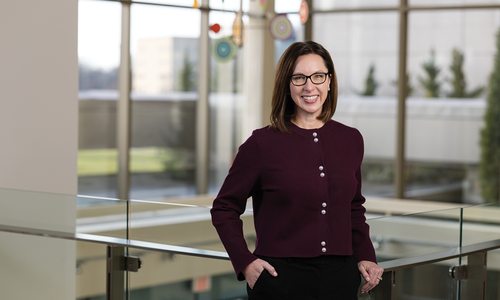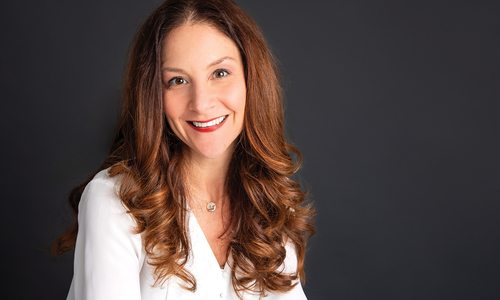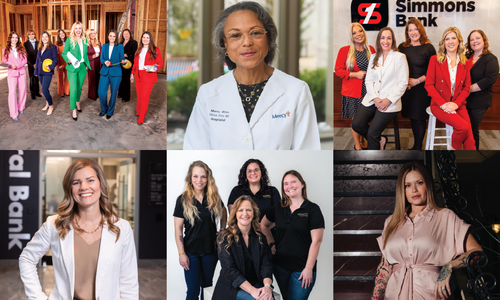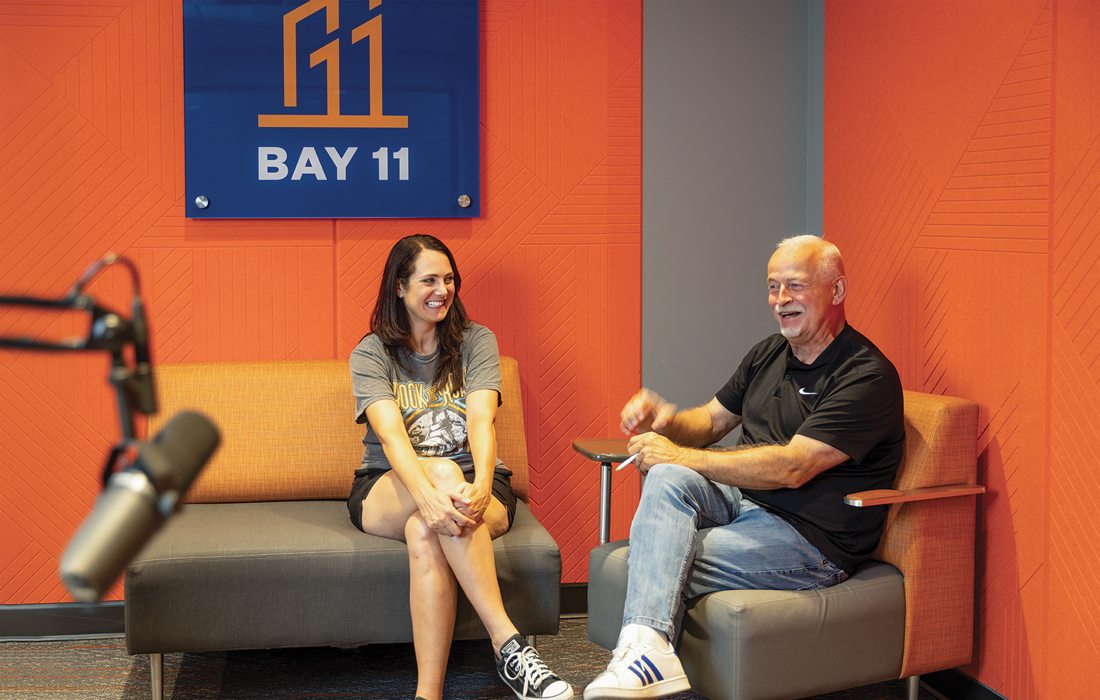
Strategy
Mentorship Moment with Rae Snobl and Dave Davis
Rae Snobl has gone from student to teacher, taking over the role of her mentor and former teacher, Daven Davis.
by Jordan Blomquist
Sep 2024

A student-teacher mentorship is all the more special when it lasts for decades. Rae Snobl was Dave Davis’s student in the ’90s at Hillcrest High School, and after a successful career in media, she is now filling his shoes as the broadcast journalism teacher.
Davis recently retired after a remarkable 42-year teaching career, with 41 of those years spent at Hillcrest. He even created the school’s award-winning broadcast journalism program, HTV. Now, after years away from the Student Television Network (STN), Davis is returning as the contest coordinator for all their national contests. STN is a nonprofit organization that works to help high school and middle school students and teachers learn the ropes of broadcast journalism, film and media production with resources, contests and a yearly convention.
Snobl has been teaching at Hillcrest for three years. She previously worked in marketing and advertising for 18 years before going back to school to get her master’s and teach.
We sat down with Davis and Snobl to talk about what has made their mentor relationship so successful all these years.
Biz 417: Davis, lots of teachers are considered mentors, but how is this dynamic different now that your previous student is also a teacher?
Dave Davis: It is a little different dynamic, but it’s been comfortable. It’s been what, I think, a mentor/mentee situation should be, and I’ll be rooting for her from the sidelines now. We have a lot of common points of reference because she stayed in touch with the program, she came through the program and helped build the program by being in it.
Biz: Rae, how do you plan to take what you’ve learned from Davis as you start to mentor your own students?
Rae Snobl: Getting to work directly with him, I get to watch the dynamic of how he handled each part of the process. The basics of holding ourselves to the highest journalistic standards, practicing ethics, teaching students how to tell a story with visuals and shoot and edit properly, and how to go out in the community and talk to people—those are skills that can transfer to anything, so I’m going to take all of that and keep building on it.
Biz: What have each of you gained from this mentorship?
D.D.: For me, peace of mind knowing the program is in good hands.
R.S.: I’ve gained so much knowledge and experience from him. He’s always been my teacher. I gained confidence through him teaching me what I needed to know, but giving me space too. He’s always made me feel more like a mentor partner in a way, and I’m really grateful for that.
Biz: How can someone be a good mentor or mentee?
D.D.: Write things down. The other thing is, be a mentor, but you don’t have to be an expert about everything. Meet them where they are, listen, suggest, but they don’t have to do everything you did. The world would be boring if she tried to be me.
R.S.: I also think listen. You have to be open because if you are coming in closed off then you’re going to miss a lot of opportunities. Be open to expanding your preconceived notions on things, and be willing to take criticism and advice and learn and grow from it and apply it.

